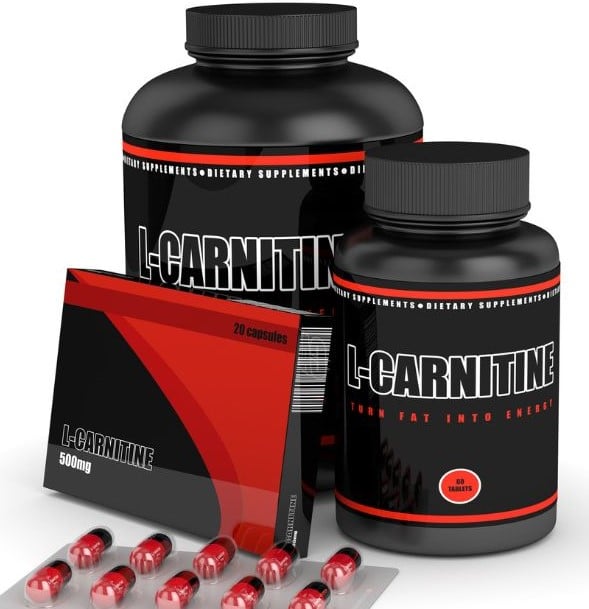In the quest for a leaner physique, focusing on specific areas of stubborn fat can be a challenge. Let’s get one thing straight: relying solely on supplements for spot reduction isn’t a magic fix. However, some supplements can play a role when combined with a holistic approach, including a balanced diet, mindful eating, and regular exercise. We’ll delve into targeted fat loss supplements in this article and explore how they fit into a comprehensive plan, including the importance of a well-crafted meal plan.
Caffeine: The Metabolic Igniter
How it works: Caffeine is a natural stimulant that acts on the central nervous system. It increases the release of neurotransmitters like adrenaline, which can enhance energy expenditure and fat oxidation. Also, Are Twisted Teas Gluten Free?
Potential benefits: Caffeine has a well-documented thermogenic effect, leading to a temporary boost in metabolism. It may also reduce appetite temporarily, aiding in calorie control.
Limitations: Over time, individuals can develop a tolerance to caffeine, diminishing its effectiveness. Excessive consumption can lead to side effects like jitteriness, anxiety, and insomnia.
Green Tea Extract: Nature’s Fat Fighter
How it works: Most people know green tea as a natural aphrodisiac, but it can also help you lose weight. extract is derived from Camellia sinensis leaves and contains bioactive compounds known as catechins. Among them, epigallocatechin gallate (EGCG) is the most prominent. EGCG has been shown to increase fat oxidation and may influence weight loss.
Potential benefits: Green tea extract can be a valuable addition to a weight loss regimen due to its thermogenic properties. It offers numerous health benefits beyond fat loss, such as antioxidant and anti-inflammatory effects.
Limitations: The effects of green tea extract can vary among individuals, and its impact on weight loss, while present, may not be substantial when used in isolation.
Conjugated Linoleic Acid (CLA): The Fat Metabolism Modifier
How it works: CLA is a polyunsaturated fatty acid found in dairy products and meat. It is believed to influence body composition by promoting fat breakdown and inhibiting fat storage.
Potential benefits: Some studies suggest that CLA supplementation can lead to modest reductions in body fat, particularly in the abdominal region.
Limitations: The effects of CLA are relatively modest, and its efficacy may vary from person to person. Long-term safety and optimal dosages are still subjects of ongoing research.
Yohimbine: Targeting Stubborn Fat
How it works: Yohimbine is an alkaloid derived from the bark of the Yohimbe tree. It acts as an alpha-2 adrenergic receptor antagonist, increasing the release of norepinephrine, which can enhance fat mobilization.
Potential benefits: Yohimbine may be effective in targeting stubborn fat areas, particularly in men. It can potentially help with fat loss when used in a targeted manner.
Limitations: Yohimbine can have side effects such as anxiety, increased heart rate, and gastrointestinal distress. Its effectiveness varies among individuals, and it may not be suitable for everyone.
L-Carnitine: The Fat Transporter
How it works: L-Carnitine is an amino acid derivative that plays a crucial role in transporting fatty acids into the mitochondria, where they can be burned for energy.
Potential benefits: L-Carnitine may enhance the utilization of stubborn fat during exercise, potentially improving overall fat loss. It can also have potential benefits for exercise performance and recovery.
Limitations: The effectiveness of L-Carnitine can vary, and it may not yield significant results without concurrent exercise. Individual responses and the optimal dosage remain areas of debate among researchers.
Garcinia Cambogia: The Appetite Suppressor
How it works: Garcinia Cambogia is a tropical fruit that contains hydroxycitric acid (HCA). HCA is believed to inhibit an enzyme that plays a role in fat production and may suppress appetite.
Potential benefits: Some studies have suggested that Garcinia Cambogia may lead to modest weight loss. It has also been marketed as an appetite suppressant.
Limitations: The effects of Garcinia Cambogia on weight loss are inconsistent, and the scientific evidence supporting its use is limited. Additionally, it may interact with certain medications and have adverse effects.
These weight-loss supplements offer potential benefits but come with various limitations and should be used cautiously and in conjunction with a well-rounded, healthy lifestyle.
Scientific Studies and Evidence
To better understand the effectiveness of these targeted fat loss supplements, it’s crucial to examine the scientific studies and evidence supporting their use.
Caffeine
- Numerous studies have demonstrated caffeine’s thermogenic effect and its potential to increase energy expenditure and fat oxidation. However, long-term effects can vary, and tolerance may develop with prolonged use. Here are some of these studies:
- Caffeine has been shown to help with appetite suppression. For example, one study found that people who consumed 100 mg of caffeine ate fewer calories than those who did not.
- A 2018 meta-analysis of 13 randomized collected trials found that caffeine intake was associated with significant weight, BMI, and fat mass reductions.
Green Tea Extract
- Research suggests that green tea extract, particularly its EGCG content, can contribute to weight and fat loss. Regular consumption of green tea has also been associated with various health benefits, including improved blood sugar control and brain health, reduced risk of heart disease and cancer, protect the skin from damage and aging, and improved liver function.
- Some scientific studies have investigated the effects of green tea extract on weight loss and fat burning.
- A 2009 meta-analysis of 14 randomized controlled trials (RCTs) found that green tea extract (GTE) resulted in a small but statistically important increase in weight loss compared to a placebo, a substance or treatment with no active ingredient often used in clinical tests to compare the efficacy of a new drug. The average weight loss in the green tea extract groups was 1.3 kg greater than in the placebo groups over a period of 12 weeks.
- A 2013 review of 17 RCTs found that GTE was associated with significantly increasing fat oxidation or burning fat for energy. The review also found that GTE was more effective in promoting fat oxidation in people who were overweight or obese.
CLA
- Studies on CLA have produced mixed results. While some indicate modest reductions in body fat, others have not replicated these findings. The effectiveness of CLA may depend on factors like dosage and individual response. Pieces of evidence are as follows:
- A review of 18 high-quality human studies found that CLA supplementation had a modest effect on weight loss, reducing body weight by an average of 0.11 pounds per week compared to placebo. However, the studies varied regarding the dose of CLA used, the duration of supplementation, and the population studied.
- Some studies have found larger effects of CLA on weight loss. For example, a 12-week study in overweight and obese adults found that those supplemented with 3.2 grams per day of CLA lost an average of 5.3 pounds more than the placebo group.
Yohimbine
- Yohimbine’s efficacy in targeting stubborn fat areas, especially in men, has been demonstrated in some studies. However, it should be used cautiously due to potential side effects and individual variability. Here are a few pieces of evidence:
- One study published in 1997 found that obese women who took yohimbine for three weeks significantly lost more weight than those who took a placebo. The yohimbine group lost an average of 7.8 pounds (3.6 kg), while the placebo group lost an average of 4.9 pounds (2.2 kg).
- Another study found that yohimbine helped elite soccer players lose body fat and improve their exercise performance. The yohimbine group lost an average of 1.8 percentage points of body fat throughout the study, while the placebo group showed no significant change in body fat.
L-Carnitine
- L-Carnitine has shown promise in improving fat utilization during exercise. Some studies suggest it can enhance exercise performance and recovery. The optimal dosage and its effects on fat-burning strategies remain subjects of research.
- Some research suggests that L-carnitine supplementation may help with weight loss and fat trimming. For example, a 2019 meta-analysis of 37 randomized controlled trials found that L-carnitine greatly lowers body weight, fat mass, and body mass index. The effect was most pronounced in adults with overweight or obesity.
- Another review found that individuals lost an average of 2.9 pounds (lbs) more while taking L-carnitine.
Garcinia Cambogia
- Research on garcinia cambogia has yielded inconsistent results. While some studies indicate modest weight loss effects, others have found no significant impact. The safety and efficacy of this supplement remain debated.
- Some studies have discovered that Garcinia Cambogia can help people lose weight. For example, a review discovered that people who took Garcinia Cambogia lost about 2 pounds more than those who didn’t.
- Other studies have found no effect of Garcinia Cambogia on weight loss or fat loss. For example, a large study of 135 people found no difference in weight loss between those taking Garcinia Cambogia and those taking a placebo.
Important Considerations
1. Holistic Approach
View supplements as a complement, not a substitute, for a well-rounded strategy in weight loss. Prioritize a holistic approach, embracing calorie control, strength training, cardio exercise, and overall healthy living. Don’t forget the importance of staying hydrated—it’s a game-changer in shedding those pounds. Remember, the combination of these factors fosters sustainable fat loss, ensuring you’re on the right track to a healthier you.
2. Individual Variability
The effectiveness of supplements can vary significantly on the body composition. What works for one individual may not yield the same results for another. Personal genetics, metabolism, and lifestyle play crucial roles.
3. Consultation with Healthcare Professionals
Before starting any supplement regimen, it’s advisable to consult with a healthcare professional, such as a physician or registered dietitian. They can provide personalized guidance based on your health status and goals.
4. Safety and Dosage
Some supplements may have side effects or interactions with medications. It’s crucial to understand the potential risks and use supplements at recommended dosages.
5. Scientific Evidence
While some supplements have promising research behind them, the evidence is not always conclusive or consistent. Stay informed about the latest research and be cautious of exaggerated claims.
Conclusion
This article has delved into targeted fat loss supplements, addressing the challenges of stubborn fat, fat-burning strategies, and spot reduction. It’s crucial to understand that while these supplements offer potential support, they can’t replace the fundamental principles of a healthy diet and regular body movement, which are vital for achieving significant changes in body composition.
A holistic approach involving lifestyle adjustments and a sustained commitment to healthy practices is the key to pursuing a leaner physique. Supplements may complement fat-burning strategies, but their effectiveness depends on a comprehensive plan that factors in diet, physical activity, and personalized body composition goals. In conclusion, supplements should not be seen as a quick fix for spot reduction. Instead, a balanced, evidence-based approach remains essential for achieving lasting and meaningful results in pursuing a healthier, more resilient self.





